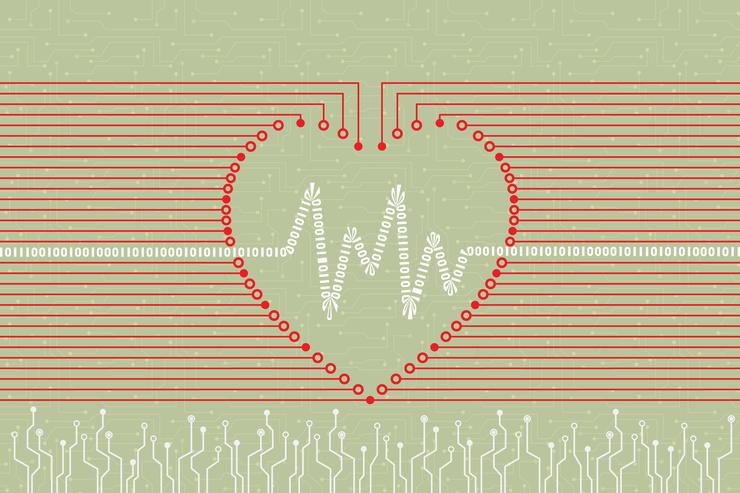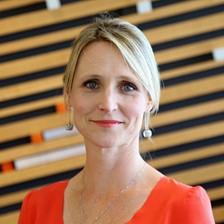
No single communication campaign, technology or research project working in isolation will transform a sector or change behaviour
There are many complex problems that still need to be tackled in the healthcare industry. However, many of them cannot be solved by throwing an app at it, especially when the fundamental building blocks for how we share or use the data are not all in place yet.
We can all agree technology continues to be a catalyst for change, particularly in the healthcare sector. There are many complex problems that still need to be tackled in the healthcare industry. However, many of them cannot be solved by throwing an app at it, especially when the fundamental building blocks for how we share or use the data are not all in place yet.
Technology is an enabler but it's not the only factor in influencing change.
The healthcare IT sector is renowned for being complicated and littered with lengthy and expensive IT projects. This is often exacerbated by overworked clinicians, stretched budgets and a risk-averse approach to embracing change. To be fair, this is partly due to the complexity of the healthcare environment and the fact it’s a 24x7 mission critical service which simply cannot afford to be down due to a technical failure. High standards of compliance, privacy and integration is a necessity.
We’re fortunate in New Zealand that we have a deep commitment to a public health system. But it is under immense pressure and much of the time it ends up as the ambulance at the bottom of the cliff.
Like so many other countries, New Zealand is trying to mitigate the pressure on the healthcare system by giving health professionals the data and tools to reach people early, through preventative measures, avoiding the huge costs associated with picking people up once they arrive at hospital.
This is where technology can help. We are now able to collect the data we need, through new devices and apps, to start using it for prediction and where possible to put in place measures for intervention of patients. We know what is needed to solve the problem, and technology can help us get there.
Tech developers and clinicians are both problem solvers. It is essential that software developers continue to work closely alongside clinicians to ensure they solve problems together, through an aligned vision and goals.

Tech developers and clinicians are both problem solvers. It is essential that software developers continue to work closely alongside clinicians to ensure they solve problems together,
Healthcare systems around the world are trying to get their heads around how to apply advanced technology such as machine learning and data science to help identify those people most at risk. The technologies exist today, however the funding mechanisms and change processes in the delivery of healthcare have not evolved as quickly.
People and technology working together
Canterbury District Health Board has set up their health system to look at the patient first, considering the outcome rather than the care setting. This has meant putting in place funding that focuses on achieving the best outcome for each individual. It is the epitome of how a health system should work, providing data and knowledge for healthcare professionals to intervene with patients early, putting the necessary care around them to keep them well in their own homes and out of hospital.
Canterbury is paving the way for other industries through combining technology enablers with business intelligence and service redesign, recognising that technology needs to be accompanied by the right people to truly make a difference.
My father lives in Christchurch, he has atrial fibrillation and type 2 diabetes, making him a high-risk patient according to the healthcare system. He was struggling with his cocktail of medicines, and really needed more support with what medicines to take, when and how.
The medicines management programme developed by pharmacists, software developers and local healthcare professionals was the technology enabler that ensured the right information was available for the pharmacy team to support my dad’s needs.
Working through this with my dad made it clear to me where the connection points need to be, in this case between the hospital, pharmacist and patient. This is where technology can be particularly useful, to ensure the patient is a more informed participant in the care they receive.
By connecting these points, technology can help people solve problems. Not just in healthcare, but in other industries, it is this collaboration between like-minded teams with diversity of perspective and expertise, that will allow technology to help them achieve their goals.
The collaboration that was involved in designing the Canterbury Health System has enabled my dad to be a change agent for his own health outcomes.
With the support of an outstanding team of clinicians, together they could access relevant data about him when he needed it and where he needed it. Instead of waiting for him to arrive at the emergency department to intervene with his medications, this was done in his home. For me this is a personal and daily reminder of the impact technology can have on a person’s quality of life. Seeing these outcomes makes me even more determined to be a change agent for positive health outcomes here in New Zealand.
I have come to understand that no single communication campaign, technology or research project working in isolation will transform a sector or change behaviour. It’s the collaboration between teams with a shared vision and purpose that will make the biggest difference and allow change to flourish in an industry.
Kate Reid is GM Orion Health New Zealand.
Join the CIO New Zealand group on LinkedIn. The group is open to CIOs, IT Directors, COOs, CTOs and senior IT managers.
